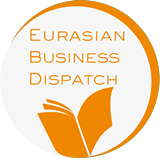Why Kazakhstan will not be returning to Russia’s fold (di Nargis Kassenova)

Kazakhstan, the key strategic partner of the United States in Central Asia, is in turmoil. Until the end of 2021, it was a confident (bordering on smug), upper-middle-income country; its leaders routinely boasted about success at fostering interethnic peace and stability.
Yet in the course of just a few days it has been rocked to the core by the double blow of unprecedented nationwide protests and a power struggle among members of the top political elite. On Jan. 11, President Kassym-Jomart Tokayev announced a deadline for the departure of the roughly 2,500 foreign troops he had invited into the country to help control the unrest. Tokayev had asked the Collective Security Treaty Organization (CSTO), a Russia-led security alliance, for assistance in combating “an external terrorist attack.” The request was granted at lightning speed, making it the group’s first operation to help a member state deal with a security crisis.
Nargis Kassenova discusses this piece in more detail on James Hohmann's podcast, "Please, Go On." Listen now.
Most CSTO troops in the country are Russian — awakening fears that their presence amounted to an invasion or even “occupation.” U.S. Secretary of State Antony Blinken caustically observed: "One lesson of recent history is that once Russians are in your house, it’s sometimes very difficult to get them to leave” — prompting a predictably furious reaction from the Kremlin. But there are good reasons to believe that Kazakhstan will not be returning to its Soviet-era position of subservience to Moscow any time soon if ever.
Many observers have rightly viewed the CSTO troop deployment as a victory for Moscow. By dispatching these forces, Russia also signaled to Kazakhstan’s political elites, including the security apparatus, whom to side with. We do not know what the price tag for this assistance will be. We will soon see how this affects the Kazakh government’s approach to various Russia-linked issues, including the Russia-Ukraine conflict.
The troop deployment is a signal to the region and other neighbors that Russia is willing and able to prop up faltering client states. Tokayev, for his part, will have to contend with the burden of his unwelcome new status as the man who invited Russia back into the country. (His government has already gone to some lengths to assuage popular concerns about the CSTO involvement — such as appointing a known nationalist as the minister of information and social development.)
Yet it would be wrong to presume that the past three decades of efforts to build Kazakh statehood are now on the verge of evaporating. During that time, the country has developed a wide variety of political, economic and cultural links to the rest of the world.
In December 1991, when Kazakhstan declared its independence from the Soviet Union, the population of ethnic Kazakhs made up around 40 percent of the population. Today, they account for around 70 percent. That shift is the result of the gradual out-migration of the descendants of the millions of Russians and other Europeans who came to the region in Soviet days. It also owes much to efforts by the country’s founding leader, Nursultan Nazarbayev, to “repatriate” ethnic Kazakhs from China, Mongolia and other Central Asian countries. The number of Russian-speakers has steadily declined — while the Kazakh language has firmly entrenched itself as the official tongue of government and culture.
New generations of citizens have spent countless hours in school on lessons about Kazakh history and national identity. Citizens have developed emotional attachments to national symbols. Protesters in different parts of the country in recent days have sung the national anthem (adopted in 2006) and waved the flag of Kazakhstan.
The rise in national consciousness explains the strong negative reaction of many citizens to Tokayev’s decision to ask the CSTO for help, perceiving it as a betrayal of the country’s sovereignty. Some were struck by the symbolism of the protests on the central square of Almaty before the troops arrived. It was on this same square that Kazakh demonstrators first took to the streets in defiance of the status quo in December 1986, one of the earliest civic protests in the Gorbachev era and a formative episode in the development of Kazakh national consciousness that was brutally suppressed by Soviet troops.
This time — perhaps in awareness of nationalist concerns — the government has been using the Russian troops to guard infrastructure and official installations, while Kazakh forces are conducting military operations on the ground and Kazakh authorities deal with protesters. Reliable polls are hard to come by, but social media reactions clearly reveal heightened sensitivity to the Russian presence.
Over the past three decades, U.S. policy in Kazakhstan has consistently worked to reinforce the new nation’s independence, sovereignty and territorial integrity, checking Russia’s neo-imperial tendencies. The events unfolding this month show that the story is a complicated one. The interaction between Russia and Kazakhstan undeniably features some aspects of a patron-client relationship.
Yet this reality is becoming increasingly uncomfortable for Kazakhstan and its people, and there is a growing aspiration for more sovereignty. (In 2020, the Kazakh government notably rejected Russian efforts to deepen regional integration.) Whatever other policies they might pursue, the United States and its allies should persist in their efforts to suppor.
Articolo pubblicato il 13 gennaio 2022
Fonte: The Washington Post
Autore: Nargis Kassenova
Articolo Originale: https://www.washingtonpost.com/opinions/2022/01/13/why-kazakhstan-will-not-be-returning-russias-fold/




